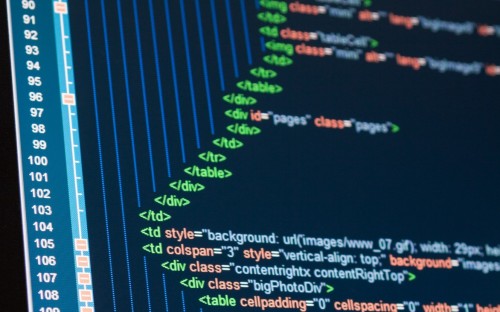A triumvirate of leading US business schools are rolling out classes in computer science as skills in technology become more important to tech companies like Google, Apple and IBM.
The business schools of Harvard, Stanford and New York Universities have all offered coding classes to their MBA students.
Others are teaming up with their engineering schools to produce tech-savvy managers.
A survey by Kaplan Test Prep, an educational services company, this week found that 26% of US business schools offer coding courses, with a further 7% expected to develop one in the future.
“We think MBA programs may increasingly offer their students the opportunity to take courses in both coding and data science in the years to come,” said Brian Carlidge, executive director at Kaplan.
He added that businesses are increasingly taking an interest in these two areas.
Data analytics courses are now widespread at top business schools, with most high-ranking MBA programs incorporating them or planning to do so over the next year.
Recruiters want MBA graduates who understand how to use big data to drive business insights and improve performance, say careers managers.
“Creating leaders that have the ability to translate data into strategy, ideas and actual solutions that benefit clients will be an even more important asset for companies [in the future],” said Brian O’Donnell, chief data officer at CIBC, one of Canada’s largest chartered banks.
MBA graduates increasingly want to work for innovative technology groups and business schools are offering more content which is a fit with Silicon Valley's companies.
Harvard recently announced that it will offer a business-focused version of its beginners’ class in computer science, which has been popular in the past. About 25 Harvard business students have cross-registered for the course this year.
New York University’s Stern School of Business has said that it plans to start a course that will teach students how to use Python, the computer programming language.
The business school’s master in data science program already teaches students to use CUDA, a computer programing model, according to course documents published online.
Students on Stern’s master in business analytics program, which filled its class of 60 and closed the admissions process a month early, also “get their hands dirty” with programming language.
“We are teaching the managers [and] executives who need to understand the language of analytics and how to leverage data to make strategic decisions,” said Roy Lee, Stern's assistant dean of global degree programs, in an interview with BusinessBecause.
He added that average work experience of students on the course is 13 years, with executives enrolled from tech companies including Google, IBM and Microsoft.
Dozens of other business schools have launched masters degrees in data analytics.
These include the business schools of Melbourne, Imperial College – which received £20 million in funding from accountancy firm KPMG to drive data insights – and Arizona State Universities.
Canada-based DeGroote School of Business recently launched an executive MBA degree focused on big data in partnership with companies IBM and CIBC.
Len Waverman, dean of DeGroote, said that the business school wants to ensure its graduates have the skills and abilities to manage effectively in the 21st century.
Stanford GSB’s MBA students have been able to take computer science courses for the past three years.
The business school in 2013 also launched a joint degree with Stanford’s school of engineering that confers an MBA and a masters in computer science.
Hacking for Hustlers, an intensive one-day coding workshop for business school students styled as an “MBA code school”, has run classes at Harvard, NYU Stern and Wharton, a leading US business school.
A Harvard survey of MBA students in 2013 who were enrolled in CS50, the introductory computer science course, found that 83% of them said it was worth learning to code, with the remaining 17% unsure.
“My goal with the survey was to learn whether MBAs saw this well-designed and rigorous course as a good investment of their time,” said Professor Tom Eisenmann who ran the survey, given their career objectives and other study commitments.
Respondents who worked in technology companies cited recruiting opportunities, communicating with developers and writing software as the main benefits of learning how to code.
But some of the survey takers complained about time it took to learn the language.
They reported spending an average of more than 16 hours per week on CS50 – about double the amount of time other, similar MBA electives took at the time.
“I highly doubt that most HBS people after doing their cases, travelling [and] socializing, are going to set aside time to consistently do Codecademy or Treehouse every week,” wrote one Harvard respondent.
However there are more flexible coding classes available online, such as Moocs, or massive open online courses.
These include those offered by learning technology platforms Udacity and Udemy, with digital courses in programming languages like Python, HTML and CSS.
Meanwhile, Harvard’s business school last month launched a new online learning course that includes a module in data analytics.
Nitin Nohria, the school's dean, said that it will allow Harvard to reach new and wider audiences.
RECAPTHA :
21
20
a1
f2








